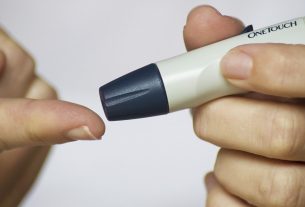Hungary and Serbia have mounted the most successful response in the economy and health care to the coronavirus pandemic and the economies of both countries have remained strong, Foreign Minister Péter Szijjártó said on Friday.
Szijjártó said after a meeting of the Hungarian-Serbian economic mixed committee in Belgrade that neither Serbia, nor Hungary “viewed the issue of vaccines as an ideological or geopolitical issue but as a tool to save people’s lives”. Thanks to the successful vaccination programmes, the two countries recognise each other’s vaccination certificates since late April, allowing citizens free movement between the two countries, he said. Szijjártó said that while global trade had fallen by 9% last year, trade between Hungary and Serbia increased by 3% and another 16% increase was reported this year.
Thanks to the successful vaccination programme, the economy can now shift in focus, he added. “Investments by Hungarian companies in Serbia are at an unprecedented high level and the successes of these companies in Serbia contribute to the further growth of the Hungarian economy,” he said. Thanks to the latest acquisition, OTP has become the second largest participant in Serbia’s bank sector and oil and gas company MOL holds a 20% stake in the fuels market, with Hungarian companies’ interest in Serbian investment opportunities staying strong, he added. He said the Hungarian government had granted 20 billion forints (EUR 57m) support to 16 Hungarian companies for carrying out investment in Serbia following the pandemic and an economic development programme for Vojvodina helps more than 14,000 businesses.
He said he had agreed with his Serbian negotiating partner during the Belgrade visit to further expand links between the two countries and make crossing borders easier. A train service between Szeged and Subotica (Szabadka) will start operation next summer and a border crossing in Hercegszántó will be made suitable for cargo transport, he added. He noted that an agreement had been signed in St Petersburg on Thursday about long-term gas supplies from Russia and added that this would mean large volumes of gas deliveries to be received from the direction of Serbia starting from the end of this year. He reiterated the position that the European Union needs Serbia and countries in the southern part of central Europe to join the bloc. “Europe has both economic and security interests in receiving Serbia as a full member of the EU and we will not stop demanding that the EU should make sufficiently intense efforts for Serbia’s integration,” he said, adding that the Western Balkans migration route was crossing Serbia and migration must be stopped. Serbian Economy Minister Andjelka Atanacković told the press conference that political relations between the two countries were extremely good but there was always room for further improvement.
Hungary has been among Serbia’s ten most important trading partners for years and the construction of the Belgrade-Budapest railway line will further contribute to this. She said it was one of the most important infrastructure projects and added that projects in water management, transport and environmental protection also strengthened relations.
After the meeting of the economic mixed committee, Szijjártó and European Integration Minister Jadranka Joksimović signed a letter of intent to further strengthen bilateral relations and develop a Western Balkans capacity building scheme.
hungarymatters.hu

















